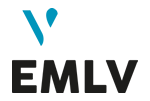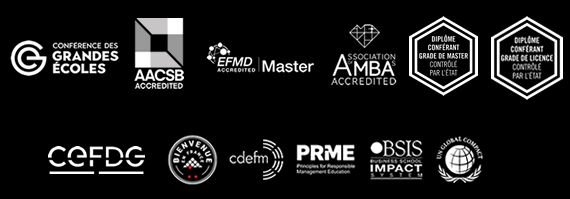Students from the 2027 class at EMLV, ESILV, and IIM joined forces for a transversal hackathon dedicated to positive impact entrepreneurship. Their mission: design a business creation project contributing to one of the 17 UN Sustainable Development Goals (SDGs). This pedagogical hackathon challenged participants to imagine a business model—B2B or B2C—addressing a social, environmental, or societal issue relevant to mainland France or overseas territories.
After a week of teamwork, each group presented its project before a jury composed of alumni, partner company representatives, and members of the De Vinci Higher Education faculty.
A Structured Programme to Support Responsible Entrepreneurship
The week began with a team-building session to lay the foundation for effective collaboration. Since students from different schools were grouped, this phase helped establish a standard work framework.
An introduction to the key concepts of responsible entrepreneurship followed. Students then selected a challenge, identified a core issue, and proposed a concrete and context-specific business solution.
The hackathon format allowed participants to dive quickly into the topic and build a relevant project, culminating in a final oral presentation.
Defining the Criteria for a Positive Impact Business
To meet the requirements of the challenge, each team was asked to adhere to three key principles:
- The core of the business model had to directly support at least one of the 17 SDGs outlined in the 2030 Agenda.
- The project had to demonstrate a clear and measurable positive impact—internally and externally—on social, societal, and ecological levels.
Positive externalities had to be identified, valued, and maximised. Any negative externalities were to be analysed, minimised, or ideally eliminated.
Five Deliverables to Validate the Project
To complete the hackathon, teams were required to produce the following:
- A visual poster summarising their concept
- A field study or exploratory survey
- A detailed project presentation document
- A “making-of” video capturing their process
- A final presentation for the jury session
Encouraging Interdisciplinary Learning Through Hackathons
Hackathons at De Vinci Higher Education are designed to promote collaboration across disciplines. More than 200 inter-school, interdisciplinary teams participated in this edition.
By bringing together students from business, engineering, and digital backgrounds, these events foster the development of a shared understanding of complex societal issues and encourage holistic thinking.
Learn more about EMLV’s hybrid, interdisciplinary, and learning-by-doing approach to education.






















